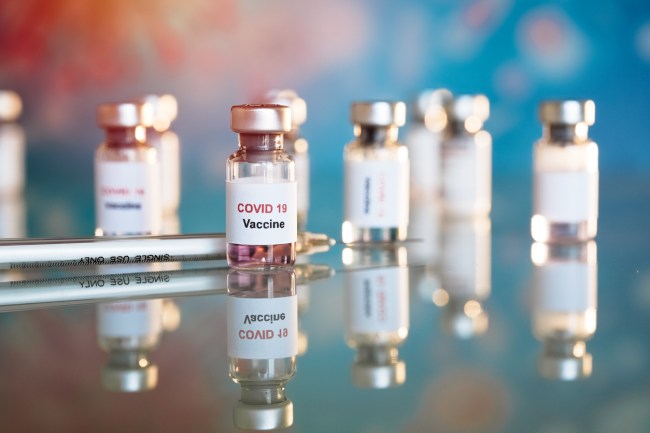
iStockphoto
On Monday night, Israeli government’s research institute — the Israel Institute for Biological Research (IIBR) — announced in an official statement that they have successfully isolated a key virus antibody — a discovery that could pave the way for a possible cure.
According to the statement, Defence Minister Naftali Bennett says that the “monoclonal neutralizing antibody” developed at the IIBR “can neutralize it inside carriers’ bodies.”
While it’s yet to be scientifically proven that antibodies prevent this specific version of the version, Bennett says in his statement that the development is “a significant breakthrough in finding an antidote.”
It [the official statement] quoted IIBR Director Shmuel Shapira as saying that the antibody formula was being patented, after which an international manufacturer would be sought to mass-produce it.
The IIBR has been leading Israeli efforts to develop a treatment and vaccine, including the testing of blood from those who have recovered [from the illness].
The antibody reported as having been isolated at the IIBR is monoclonal, meaning it was derived from a single recovered cell and is thus potentially of more potent value in yielding a treatment. [via The New York Times]
Israel is not the only place where breakthroughs are being made in this regard, as Berend-Jan Bosch of Utrecht University in the Netherlands recently published a study in the journal Nature Communications on Monday that says he and his colleagues have “created a monoclonal antibody that can defeat the virus in the lab” which is “an early but promising step in efforts to find treatments and curb the pandemic’s spread,” according to Bloomberg.
While the Utrecht University scientists said they need to conduct more research, they indicated that the monoclonal antibody has been able to “defeat” the virus in studies.
“Monoclonal antibodies targeting vulnerable sites on viral surface proteins are increasingly recognized as a promising class of drugs against infectious diseases and have shown therapeutic efficacy for a number of viruses,” Bosch and colleagues wrote in their findings.
Scientists created a monoclonal antibody that can defeat the new coronavirus in the lab, an early but promising step in efforts to find treatments and curb the pandemic’s spread.
The antibody known as 47D11 targets the spike protein that gives the new virus a crown-like shape and lets it enter human cells. In the Utrecht experiments, it didn’t just defeat the virus but also a cousin equipped with similar spike proteins, which causes Severe Acute Respiratory Syndrome, or SARS.
Monoclonal antibodies are lab-created proteins that resemble naturally occurring versions the body raises to fight off bacteria and viruses. Highly potent, they target exactly one site on a virus. In this case, the scientists used genetically modified mice to produce different antibodies to the spike proteins of viruses. After a subsequent screening process, 47D11 emerged as showing neutralizing activity. Researchers then reformatted that antibody to create a fully human version, according to the paper. [via Bloomberg]
While there’s still a ways to go in this battle, terms like “significant breakthrough” and “defeats the virus” are certainly something to be hopeful about.
***
Eric is a New York City-based writer who still isn’t quite sure how he’s allowed to have this much fun for a living and will tell anyone who listens that Gotham City is canonically in New Jersey. Follow him on Twitter @eric_ital for movie and soccer takes or contact him eric@brobible.com